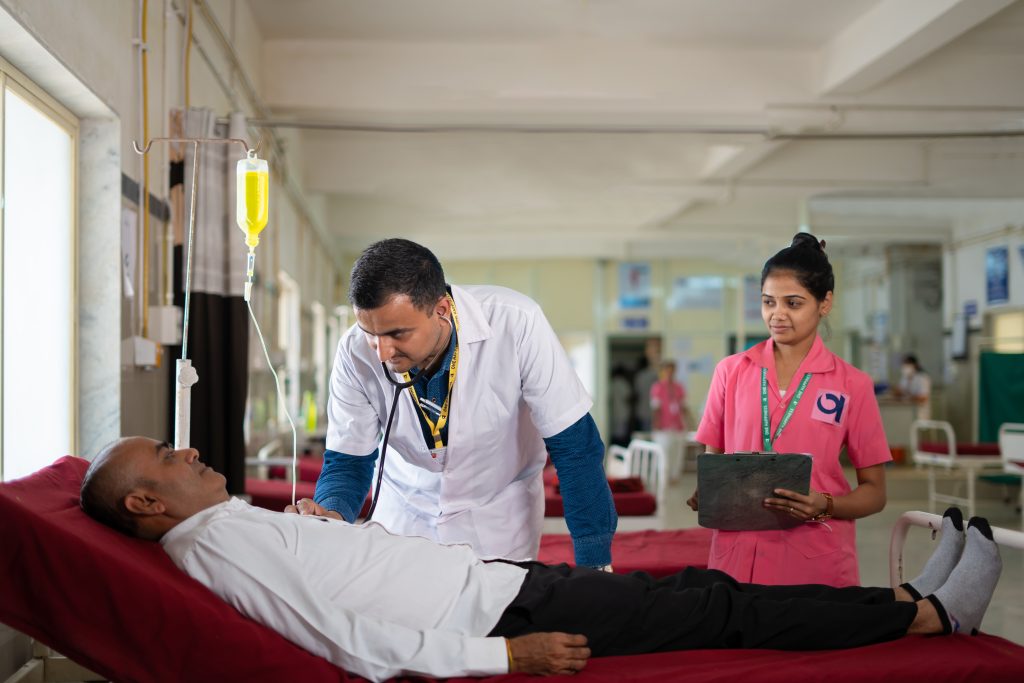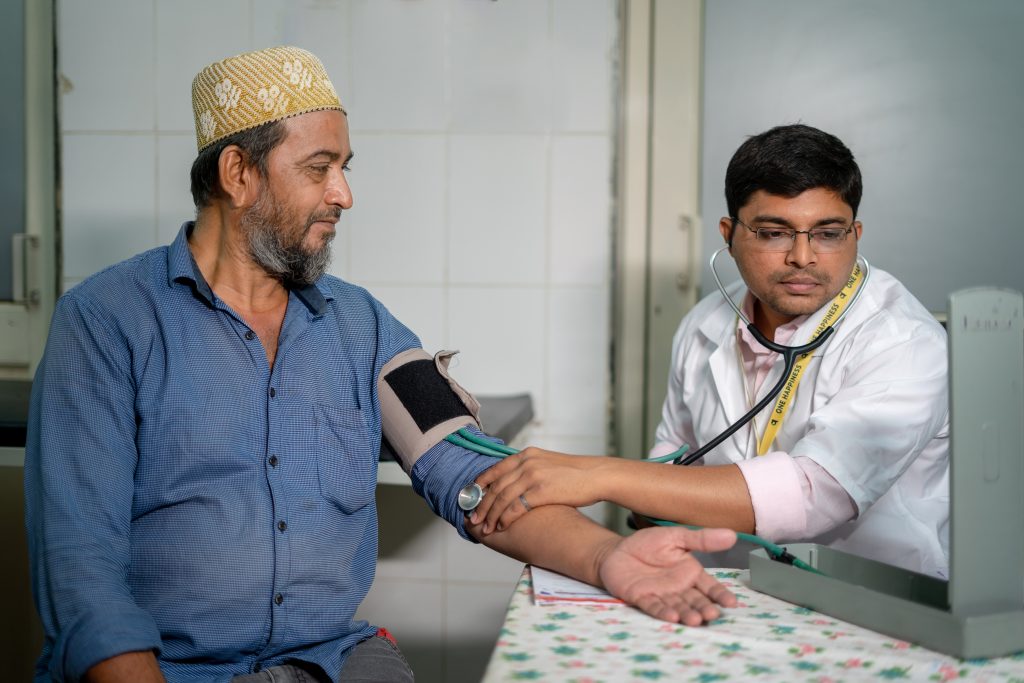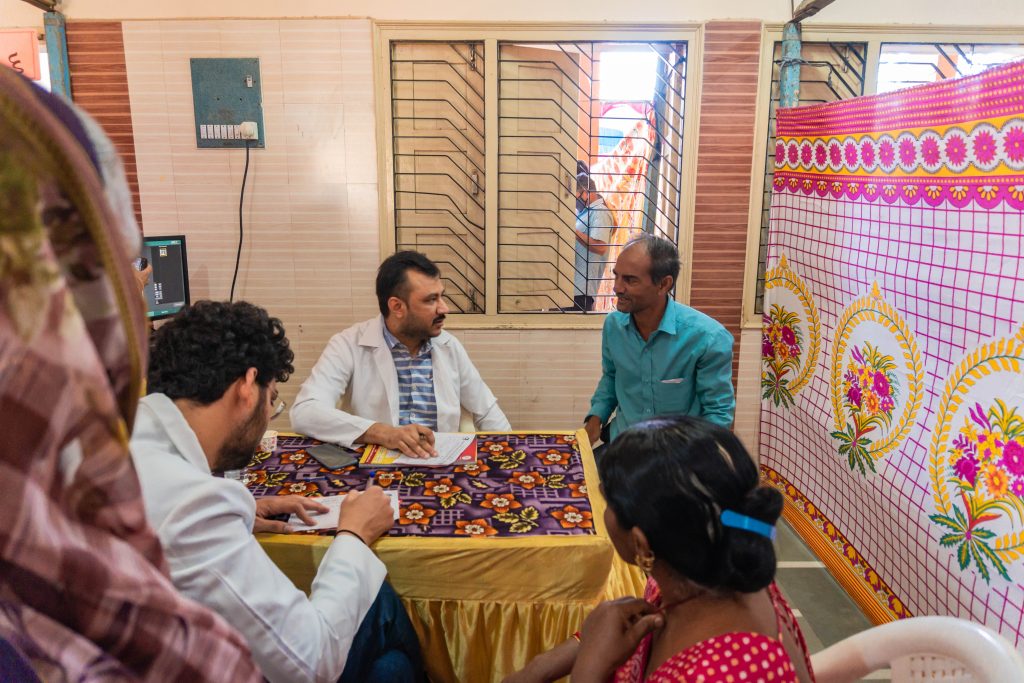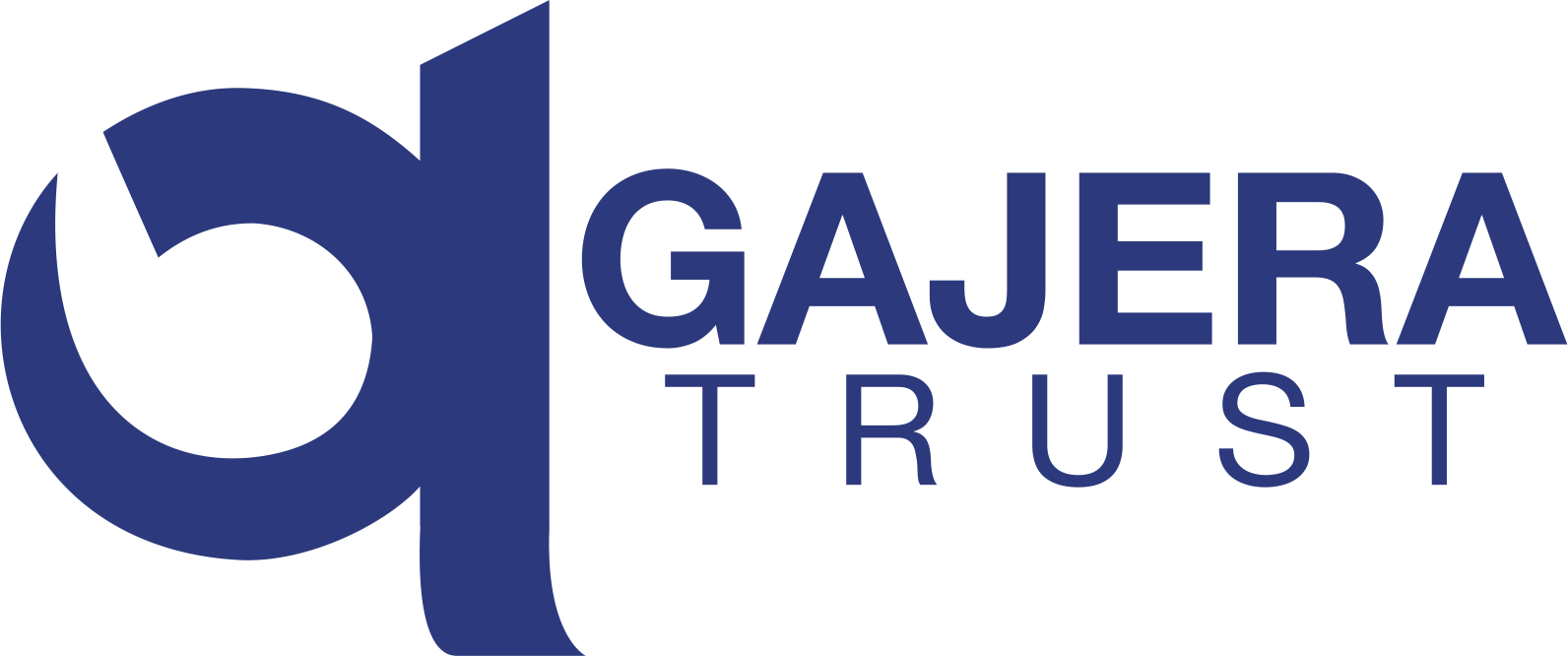- Have any questions?
- (+91) 02792 230240
- info@smcgh.edu.in

Navigating the future of epilepsy and care
December 6, 2023
Challenges and solutions for healthcare in rural communities
February 12, 2024Ageing introduces a host of health-related changes and challenges that individuals navigate
as they progress through different life stages. Physiologically, there is a natural decline in
muscle mass, bone density, and joint flexibility, contributing to a gradual decrease in overall
physical strength and mobility. Common health concerns such as cardiovascular issues,
arthritis, and a decline in immune function become more prevalent. Additionally, the risk of
chronic conditions such as diabetes and osteoporosis tends to increase with age. Mental
health may also be impacted, with cognitive functions undergoing changes that can range
from mild forgetfulness to more severe conditions like dementia. Navigating these health-
related challenges requires a proactive approach, emphasizing regular exercise, a balanced
diet, and consistent medical check-ups to ensure well-being and quality of life in the later
years.
Diet and Nutrition
Maintaining a healthy diet is paramount in promoting overall well-being, especially as we
age. A diet rich in nutrient-dense foods plays a crucial role in supporting the body’s changing
needs. Adequate intake of calcium and vitamin D becomes essential to preserve bone
density and prevent conditions like osteoporosis. Incorporating lean proteins, such as fish,
poultry, and legumes, supports muscle maintenance, aiding in the prevention of age-related
muscle loss. Whole grains, fruits, and vegetables provide essential vitamins, minerals, and
fibre, contributing to digestive health and immune system function.

Hydration is equally vital, as ageing bodies may be more prone to dehydration. Sufficient
water intake supports various bodily functions, including temperature regulation and joint
lubrication. Additionally, limiting the intake of processed foods high in sodium, saturated fats,
and added sugars helps manage blood pressure and cholesterol levels, reducing the risk of
cardiovascular diseases. As dietary needs vary among individuals, consulting with a
healthcare professional or a registered dietitian can help tailor a nutrition plan that addresses
specific health concerns and ensures a vibrant and healthy ageing journey.
Exercise and Physical Activity
Regular exercise and physical activity play pivotal roles in promoting and maintaining health
as individuals age. Engaging in aerobic exercises, such as brisk walking, swimming, or
cycling, helps improve cardiovascular health, enhancing heart and lung function. Strength
training exercises, like lifting weights or resistance training, contribute to the preservation of
muscle mass and bone density, crucial for maintaining mobility and preventing fractures.
Moreover, flexibility and balance exercises, such as yoga or tai chi, can reduce the risk of
falls and enhance overall stability.

Incorporating these exercise habits into one’s routine not only contributes to physical well-
being but also positively influences mental health. Exercise has been linked to improved
mood and cognitive function, reducing the risk of conditions like depression and dementia.
Establishing a consistent routine that includes a variety of exercises tailored to individual
preferences and abilities is key. Moreover, staying socially active through group activities or
exercise classes can add a social component, fostering a sense of community and
motivation. By prioritizing regular physical activity, individuals can actively contribute to their
overall health and well-being throughout the ageing process.
Preventive healthcare and screenings
Preventive healthcare and regular screenings play a pivotal role in maintaining optimal
health as we age. Proactively addressing potential health issues before they escalate is
crucial for a fulfilling and active life in the later years. Regular check-ups, including blood
pressure monitoring, cholesterol screenings, and diabetes tests, allow for the early detection
and management of chronic conditions. Cancer screenings, such as mammograms and
colonoscopies, are instrumental in identifying malignancies in their early, more treatable
stages. Additionally, vaccinations become essential to fortify the immune system against
preventable diseases. Engaging in a healthy lifestyle, incorporating balanced nutrition,
regular exercise, and adequate sleep, further complement preventive healthcare efforts. By
embracing these proactive measures, individuals can not only enhance their overall well-
being but also foster a sense of control and empowerment in navigating the ageing process.

Shantaba General Hospital is committed to promoting and preserving the health of
individuals as they age, offering a comprehensive range of departments and screening
methods. Our dedicated team of healthcare professionals covers a spectrum of medical
disciplines, including General Medicine, Obstetrics and Gynaecology, Pediatrics, General
Surgery, Otorhinolaryngology, Ophthalmology, Psychiatry, Dermatology, Anesthesiology,
Dental, Orthopedics, Respiratory Medicine, and Radiology. Each department is equipped
with state-of-the-art facilities and skilled specialists to provide personalized care tailored to
the unique health needs of individuals as they approach older age. At Shantaba General
Hospital, our focus extends beyond treatment to proactive screening methods, ensuring
early detection and prevention, ultimately empowering our community to lead healthy and
fulfilling lives.
Medication management
Effective medication management habits are crucial for maintaining health and well-being as
we age. Firstly, it’s essential to establish a routine for taking prescribed medications
consistently. Adhering to a set schedule helps ensure that medications are taken at the
correct times and in the right doses, promoting their optimal effectiveness. A pill organizer
can be a handy tool, simplifying the process and reducing the risk of missed doses. Regular
communication with healthcare providers is equally vital. Keeping them informed about any
side effects, concerns, or changes in health can facilitate adjustments to medication
regimens, ensuring they remain tailored to an individual’s evolving health needs.
In addition to a consistent routine, staying organized with medication information is key.
Creating a comprehensive list of all medications, including prescription drugs, over-the-counter supplements, and vitamins, can aid in effective communication with healthcare professionals and prevent potential drug interactions. Regular medication reviews with healthcare providers help assess the continued necessity of each medication and whether adjustments or simplifications can be made. Lastly, fostering open communication with pharmacists ensures a clear understanding of medication instructions and potential side effects. By cultivating these medication management habits, individuals can proactively contribute to their health and well-being as they navigate the ageing process.





